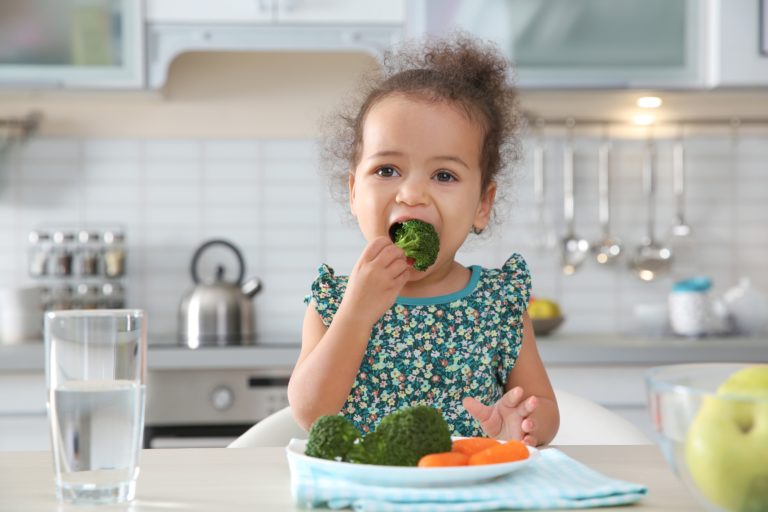One of the most common complaints I get from parents is that their children don’t eat vegetables. This usually starts around 18 months once kids start to realize that they have opinions about what they eat and can start to be a little pickier. There is a biological reason why many kids don’t like the taste of vegetables and would rather not eat them. Vegetables generally are more bitter-tasting than other foods and in nature bitter is often a warning sign for toxins or poisons. Over time we can overcome that instinct by tasting foods over and over again and realizing that broccoli is not poisonous. This is why I recommend that parents offer their children different vegetables over and over again because it can take 15-30 times tasting a food to learn to like it. Additionally there are multiple preparation methods that help remove bitterness from vegetables that will help children like their taste better. Caramelizing, braising, pickling, and roasting vegetables can reduce bitterness as can the addition of a little bit of fat and salt, like butter or bacon (note I said a little).
If you haven’t noticed already kids love to mimic the behaviors that they see, so set a good example by eating your vegetables and using positive words about vegetables at snacks and meals. They also love to be a part of the process, so have them help choose vegetables at the grocery store, pick vegetables from your garden or a pick-your-own farm, and help with meal preparation. Serve raw vegetables with dips your kid is already familiar with such as guacamole, salsa, hummus, peanut butter, or even ranch (just make sure you’re the one portioning the dip out). And definitely don’t underestimate the benefit of “hiding” vegetables by pureeing them into smoothies or mixing them into soups or stews.
Above all to keep meal time a positive experience, avoid fighting about eating vegetables. It’s fine to enforce a one-bite or no-thank-you bite rule but they shouldn’t be required to clean their plate as this will lead to power struggles. If, however, children don’t eat much, or anything, that’s served they should not be allowed to snack or eat before the next planned meal unless it’s from the plate of prepared food. Avoid using dessert as a reward for eating “undesirable” foods and instead tie it to certain days of the week or other celebrations.
For more information check out these two websites:
https://www.healthychildren.org/English/healthy-living/nutrition/Pages/How-to-Get-Your-Child-to-Eat-More-Fruits-and-Veggies.aspx.
https://www.healthychildren.org/English/healthy-living/nutrition/Pages/Tips-for-Preventing-Food-Hassles.aspx
Alaina M. Brown, MD FAAP

